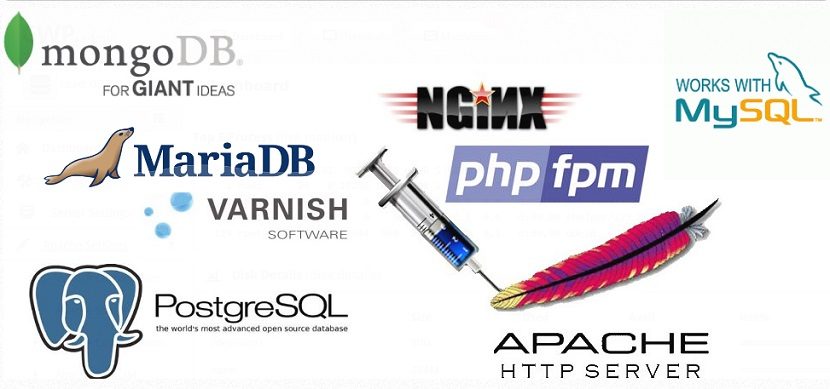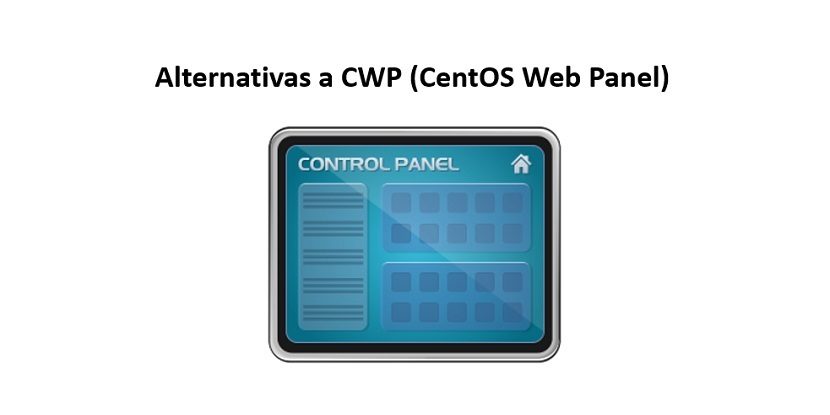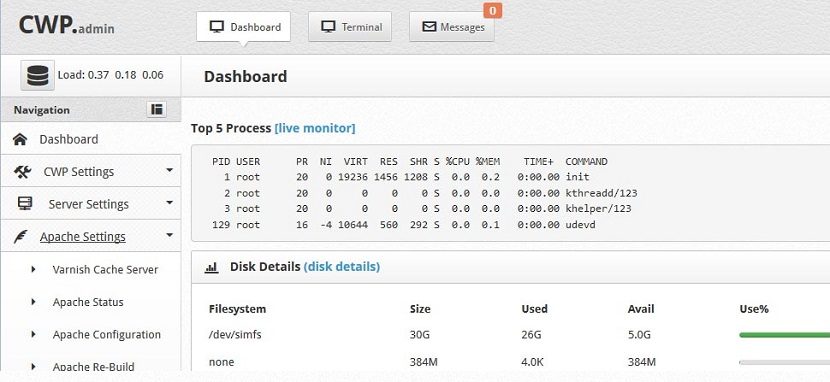
CWP (CentOS Web Panel): A free Control Panel for web management
A good «Panel de Control» for the work of «Web Hosting» today it is something of vital importance. Since they us facilitate the efficient and effective management of our managed sites inside each employee managed. As we once commented in a previous article called «And speaking of free alternatives to cPanel ...«.
And although many in this area, tend to opt when implementing one, for a Proprietary and closed software, mainly as cPanel, which today is one of the best and most used «Paneles de Control de Web Hosting» of the world, there are several free and / or free options available, being «CWP (CentOS Web Panel)» one of the best options available in a free format with advantages similar to the free ones.

First of all, for those who are not very knowledgeable in this area, keep in mind that a «Panel de Control» in a «Web Hosting», in other words, where we physically lodge (employee) our Domains, is actually a application with graphical interface (GUI) that allows the user quick and easy access to a wide variety of features, tools and functions than our employee de «Web Hosting» supports.
And that basically a good or full «Panel de Control» de «Web Hosting» has the scope of allowing the administator of the sites, the access functions or modules that allow the management of:
- Website statistics
- Data transfer traffic
- Occupied space
- Databases
- The FTP Server accounts
- Server Resource Load (Memory / CPU)
- The files and contents uploaded (Entries, Pages, Texts, Documents, Audio, Images and Videos).

CWP (CentOS Web Panel)
«CWP (CentOS Web Panel)» is a «Panel de Control» de «Web Hosting» with little time on the market, which as its name clearly indicates, can only be installed on «Servidores Linux» with «CentOS». Whereby, «CWP» is a free software designed for quick and easy administration of «Servidores (Dedicados y VPS)», with the intention of minimizing the effort of certain complex tasks and the use of the Console (Terminal) with the protocol «SSH» to access and perform them.
«CWP» offers a large number of options and default features, for the Server administration. Currently and since 2019, «CWP» releases a new update several times a week and sometimes even several times a day. However, the latest stable versions available are as follows: Versions 0.9.8.651 - 0.9.8.747, released on 21/05/2018 and 09/12/2018.
And it is important to note that «CWP» or also known as «CentOS Web Panel» o «Control Web Panel)», Has 2 official websites from where its documentation can be downloaded, tested or accessed. The first is that of CentOS and the second, that of Control. Both in English language.

Current CWP Features
Among the latests Moravia's compositions best features of «CWP» highlights that when it is installed it automatically installs a configuration of «Servidor Web LAMP» complete information about the used Server, that is, install «apache, php, mysql o mariadb, phpmyadmin, webmail, servidor de correo», among other useful and essential web service management applications.
But in summary, and showing only 3 items per area, «CWP» offers us the following:
Installation and configuration
- CSF Firewall
- File system lock
- Backups (optional)
- Server configuration self-repair
Third-party applications
- CloudLinux + CageFS + PHP Selector
- Softaculous: Script Installer (Free and Premium)
- LiteSpeed Enterprise (Web Server)
CentOS Web Panel (CWP)
- Configuration server for web hosting
- API for easier account management and WHMCS billing API
- NAT-ed version, support for NAT-ed IPs
CWP User Panel
- Advanced and secure file manager
- Custom themes and languages
- Script installer for: WordPress, PrestaShop, eXtplorer
Web Server
- Nginx / PHP-FPM and Reverse Proxy
- Integrated LiteSpeed Enterprise
- Apache compiled from source code
PHP
- PHP compiled from source code
- PHP Switch and PHP Selector
- Simple php.ini generator in user panel
User Management
- User monitoring
- User Limits Management
- FTP User and File Manager
DNS
- FreeDNS (Free DNS Server, no need for additional IPs)
- DNS zone template editor
- Simple and easy DNS zone manager
- Roundcube
- Anti SPAM
- SpamAssassin, RBL Checking, AmaViS, ClamAV, OpenDKIM
System
- Hardware information (CPU, Memory, disk, among others)
- Software information (kernel version, uptime, among others)
- Status of services (fast restart of services, for example, Apache, FTP, Mail ...)
Structural
- Live monitoring (Via top command, apache statistics, mysql, among others)
- Services Configuration (For example: Apache, PHP, MySQL, among others)
- Execution of shell commands on screen and in the background.
Security
- CSF Firewall (Best Linux Firewall)
- SSL Certificate Generator and Manager
- Letsencrypt, free SSL certificates for all your domains

Alternatives to CWP
Private and Closed
- cPanel & WHM
- Parallels Plesk
- DirectAdmin
Free and Open or Free
- Ajenti and Ajenti V
- cyberpanel
- froxlor
- GNUPanel
- InterWorx
- ISPConfig
- kloxo
- Kloxo-MR
- Open Lite Speed
- Feel
- SiteBios
- VestaCP
- Webmin and Virtualmin
- ZPanel

Conclusion
In the world of management «Web Hosting» shared He too «Software Libre» commands with many options available for providers, administrators and users. And whether they are free alternatives like «CWP», or free or paid, a «Panel de control» It will always make it easier for the user or users to autonomously manage their own sitios web. And in the case of free options available, «CWP» It has earned a place of honor for its many great included features.
Despite that «CWP» is not «Software Libre» itself, that is, it is not covered by any variant of the «Licencia Publica General de GNU» (GNU General Public License or GNU GPL or just GPL), it can be shared, downloaded, installed and used without any legal restriction or limitation, since it does not really have a license in its free version.
Finally, since it is worth highlighting the point regarding the license of the same or what is allowed or not to do with the free version of «CWP», is that it can be considered a «Software Freeware» because it is free.
And even though in the CWP Terms of Services, the developer (creator / author), prohibits many things and does not guarantee anything, as there is no real license on the product, it is understood that it is free to be edited / modified / shared under the sole responsibility of the user, in those parts of your code that are not encrypted or obfuscated. However, if someone overcomes said encryption, there are no explicit and public legal prohibitions on that particular.
Anyway, if you have used «CWP» and / or some other of the alternatives mentioned, let us know your experience via comments, to enrich the knowledge of the Community.
And for more information, always do not hesitate to visit any Online library as OpenLibra y jedit to read books (PDFs) on this topic or others knowledge areas. For now, if you liked this «publicación», don't stop sharing it with others, in your Favorite websites, channels, groups, or communities of social networks, preferably free and open as Mastodon, or secure and private like Telegram.
Or simply visit our home page at DesdeLinux or join the official Channel Telegram from DesdeLinux to read and vote for this or other interesting publications on «Software Libre», «Código Abierto», «GNU/Linux» and other topics related to «Informática y la Computación», and the «Actualidad tecnológica».
It is not free, it is closed and has an obfuscated code.
Greetings, Carlos López. Thank you for your valuable comment on this. I have already replaced the word Free for Free, where it should be changed. And at the end in the conclusion add everything related to the licensing of the same, including your contribution.
Excellent article,
CWP, You have nothing to envy a Web Hosting under cpanel, CWP in its Pro version has a really attractive price of US $ 1.49 per month or US $ 12 per year [$ 1 per month if you hire it annually], while cpanel in its last price update, almost tripled the amount of Their licenses, depending on the type of server you have, now charge you as follows:
For Dedicated Servers - Metal License: US $ 35 per month [up to 100 accounts] = US $ 420 per year + USD $ 0.20 per month per additional account:
For VPS - Cloud License: US $ 45 per month [up to 100 accounts] + USD $ 0.20 per month per additional account = $ 540 per year + USD $ 0.20 per month per additional account.
This is because cPanel was acquired by the same company that owns Plesk [Oakley Capital].
Excellent Post!
That is one of the reasons why, the analysis of data that marketing companies do to send us advertising and recommendations according to our preferences; it is neither the best nor the best tool for knowledge.
As free people we can lose ourselves in knowing and learning new things, how obvious; We did not have the "luck" or the wisdom to search and that the bombardment of our own tastes and styles will make companies sell more at the cost of limiting my experiences with new things, themes, and products.
Long live freedom!